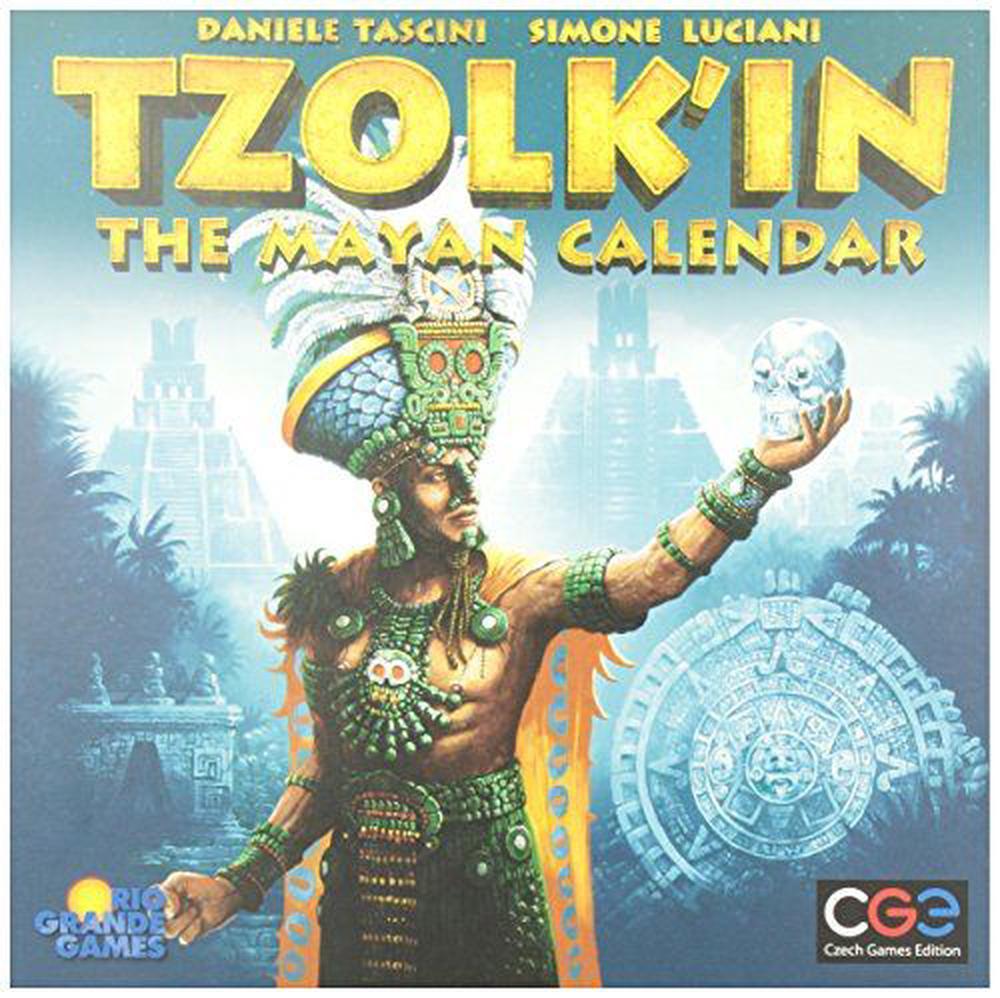Tzolk’in: The Mayan Calendar Board Game Review
Overview:
Name: Tzolk’in: The Mayan Calendar
BGG Weight: 3.67 / 5
Year Published: 2012
Publisher: Czech Games Edition
Designer: Simone Luciani and Daniele Tascini
Number of Players: 2-4
Playing Time: 90 minutes
Game Category/Theme: Civilization, Economic, Exploration
Board Game Mechanics: Bias, End Game Bonuses, Turn Order: Claim Action, Worker Placement
Ratings:
Strategy: 9.0
Complexity: 8.5
Player Interaction: 7.5
Replayability: 9.0
Game Rating: 8.8
Cost: 5.0
Calculations:
Weight Rating = 17.5
Playability Rating = 16.8
Play Rating Score = 68.6
Value Rating = 13.72
Final Score Rating = 68.6 + 13.72 = 82.32
Review:
Tzolk’in: The Mayan Calendar is a complex and challenging worker placement game that requires careful planning and strategic decision-making. The game’s unique time track mechanic adds an extra layer of depth to the gameplay, as players must decide when to place and remove their workers from the board in order to maximize their actions and score the most points.
The game also features a resource management aspect, as players must collect and manage different resources in order to advance their civilization and score points. There are multiple paths to victory, allowing for a variety of different strategies and play styles.
While the game can be complex and difficult to learn at first, the depth and replayability make it a great choice for experienced gamers looking for a challenging and rewarding gaming experience. The game also does not offer solo or cooperative play, so it is best suited for groups of two to four players.
Overall, Tzolk’in: The Mayan Calendar is a fantastic game for gamers who enjoy complex, strategic gameplay and are looking for a challenge.
10 Games like Tzolk’in: The Mayan Calendar:
- Terra Mystica: A complex economic and civilization-building game where players compete to build the most prosperous and powerful faction.
- Scythe: A competitive board game set in an alternate-history 1920s Europe, featuring worker placement and resource management mechanics.
- Viticulture: A worker placement game where players run their own vineyards, planting grapes, harvesting crops, and producing wine.
- Puerto Rico: A classic economic game where players take on the roles of plantation owners in colonial Puerto Rico, building structures and shipping goods to earn victory points.
- Concordia: A strategic game of ancient Roman trade and expansion, featuring a unique card-based action selection mechanic.
- Brass: Birmingham: A game of industrial development set in Birmingham, England during the Industrial Revolution, featuring complex economic and transportation mechanics.
- Gaia Project: A complex game of galactic exploration and civilization-building, featuring a variety of unique alien factions and technologies.
- A Feast for Odin: A Viking-themed game of economic and agricultural development, where players must feed and clothe their workers while building their wealth and power.
- Everdell: A worker placement game set in a magical forest, where players must gather resources, build structures, and recruit new creatures to their town.
This review was provided by Open Source Artificial Intelligence programs. It uses a series of complex statement to have AI programs amalgomate their databases to produces information on board games. These reviews are completely unedited output from the AI bots.

